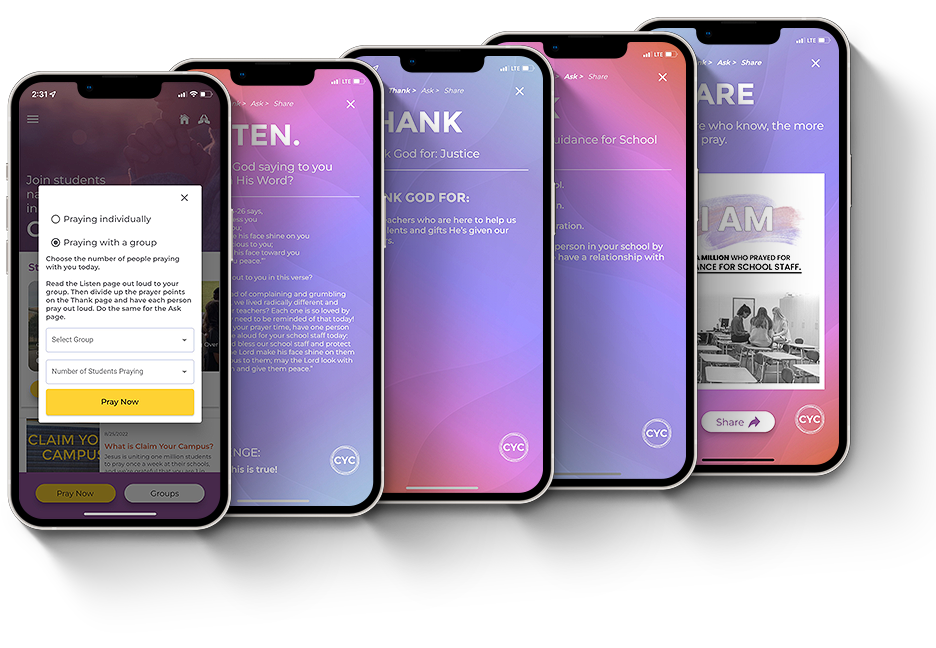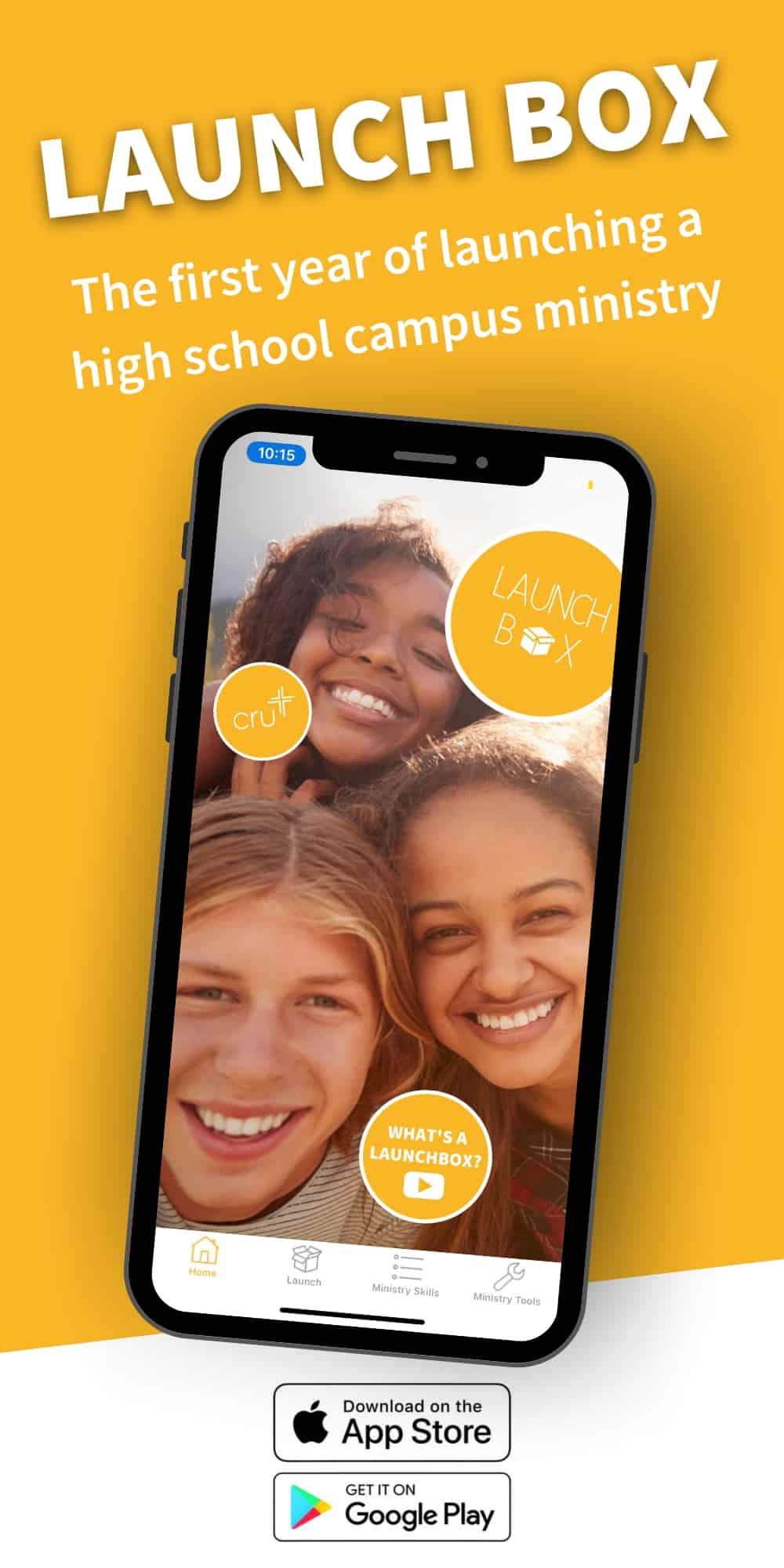If you are checking out this article, you probably have a small group that you need to prepare a Bible lesson for or you are serious about starting a small group to study the Bible. But before we jump into some practical steps, we want to encourage you with three reasons to commit the time and energy it will take to prepare for a Bible study.
Three Reasons to Prepare for Your Small Group Bible Study
1. Teaching others well is important to Jesus
Jesus’ final words on earth to us were a call to teach others about God and His ways (Matthew 28:18-20). Many times, the final words someone speaks are some of the most important things they have to say to us. Jesus cares deeply about his people being taught well. We need to care about that too and prepare well rather than just wing it each week.
2. Preparing well will help you point your group to Jesus
You are not simply helping people learn more Bible facts. It takes effort to understand your group and prepare a study that focuses on their next step toward Jesus. Sometimes people can study the Bible and miss Jesus!
In John 5:39 there was a group of religious people who had LOTS of Bible studies, but they missed the main thing! Jesus told them “You search the Scriptures because you think they give you eternal life. But the Scriptures point to me!” Preparing a Bible study can help you point your group to Jesus.
3. Preparing will give you time to see the beauty in the Bible
The Bible is filled with amazing things! Look at this prayer in Psalm 119:18 “Open my eyes to see the wonderful truths in your instructions.” Preparing a Bible study begins with this prayer and a deep dependence on God to open our eyes. You will be blessed personally when you invest the time and attention to study the Bible as the Lord opens your eyes and prepares you to teach God’s wonderful truths!
Make Your Study Learner-Centered
The Apostle Paul used two different words to describe knowledge:
One referred to intellectual knowledge (head knowledge). The other is referred to as experiential knowledge (heart knowledge).
A learner-centered approach to teaching will help you focus on both of these types of knowledge. Not only do we want our students to know the truth, but we also want to make sure they are experiencing the truth in their lives. That often will involve a variety of teaching methods. Experiential knowledge is best gained when we use all parts of our mind and senses to take it in. Research shows that we remember:
- 10% of what we read (e.g. a book).
- 20% of what we hear (e.g. a speaker).
- 30% of what we see (e.g. a poster ad).
- 40% of what we hear and see (e.g. a T.V. program).
- 70% of what we say (when we give a talk or are talking).
- 90% of what we say and do (where we are actively involved in the process).
Learner-centered teaching is where the learner is actively involved and discovers truths they can apply to their lives today and in the future. Now, let’s take a look at how to prepare for your study.
We often plateau at the level of our preparation.
Prepare Your Learner-Centered Study
1. Make a List of Your Student’s Challenges and Questions
What do you think is the next step for your students? Are your students getting the answers to the questions they have?
Our students are not here for us, we are here for them. So, before you plan all the lessons you think your students need to learn, ask them what questions they have or what challenges they are facing. Helping your students learn about these things will motivate them to show up, get involved, and stay engaged.
For example, you may have your heart set on a Bible study that focuses on the life of David but what if they really have questions about LGBTQ and what God thinks? Look for ways to engage your small group in the things your students care about.
Thrive Studies is a great resource that allows you to pick a lesson that might apply to the current needs of your small group. With over 75 topics from which to choose, there will likely be something there that will help answer your student’s questions.
If you are not sure what kind of questions your students have, take some time to get to know them. Ask questions like…
- If you could ask God one question, what would it be?
- What are some things you would like to learn about from the Bible?
- What are the greatest issues facing teens today?
- If you had five minutes to tell an adult audience anything, what would you say?
- What comes to mind for the average teenager when they think about God?
These questions will open doors to your students’ hearts and inform what lessons you should lead. Let your students’ needs be your guide to what you study.
2. Go Through the Lesson Yourself
A few days before your study, go through the whole lesson yourself. Read the passages, answer the questions, and do the assignments. This preparation work will allow you to think about it, learn it yourself, and help you make it more learner-centered. You will need time to collect any materials or resources for your Bible lesson. If you have selected a lesson from Thrive Studies, you can look in the section called the “Idea Box,” where other leaders have shared creative ideas to help with this.
3. Look at the Big Idea and How It Relates to Your Group
Ask yourself, “What is the main point I want the group to learn from this study?” This will help you stay focused and ensure that you do not get too far off track. Find studies with big ideas that match what your students want to learn.
Each of the Thrive Studies lists the big idea in the leader’s guide. Glance through the studies and match your student’s needs to the Thrive big ideas. This will not take long, but it will help you deliver meaningful and relevant conversations to your students every week.
4. Decide What You Want Your Students to Get Out of the Lesson
As a leader, you can suggest a goal for the lesson. Here are some questions that might help:
- What do you want your students to KNOW as a result of this Bible lesson?
- What do you want your students to EXPERIENCE as a result of this Bible lesson?
- What do you want your students to DO as a result of this Bible lesson?
If you can share any personal steps of faith you took during your own study, it may help encourage them in their faith steps. As you prepare to share a goal or application keep in mind the next step for one student may be different than that of another. Lead with grace and support as they each take their own steps of faith.
5. Begin With a Short Learning Activity or Question
You want to get them thinking about the central truth. You might do this through a skit, drawing, or game. Just be creative. This usually takes about 5-10 minutes. For example, you might want them to think about how God searches for lost people. Hide a small action figure somewhere and set it off, seeing who can find it first.
Thrive Studies has a starter question or activity for each study and an Idea Box that gives you other creative ideas to spice up your study.
6. Find the Best Time and Place to Meet
Another critical part of your preparation relates to where and when your group will meet. If your group is already meeting, you may want to ask if there is a better time and place. However, this is an area where you can follow the “if it isn’t broke, don’t fix it” motto. If your group is just starting, then you will want to plan ahead to decide when and where your group will meet. In this case, we suggest picking a spot in which your students would feel comfortable and gives you the ability to have a discussion that might be personal to your group.
7. Take the Lead in Communication
A lack of communication is often the first breakdown of a small group and often the reason students do not show up. About a million distractions will come at your students before the small group meets and you can take the lead to remind them. You might be discouraged at how easy it is for a student to forget about your small group, but remember the enemy of our Savior loves to distract us. Make sure everyone knows when and where you will meet and remember you may have to share this little detail several times.
8. Plan Out the Time Ahead of Time
You want to do your very best to start on time and end on time and guide everything that happens in between. Four out of five times you will run out of time. That is ok. You will still want to end on time. Some students will have other work and responsibilities, and when you do your best to end on time, it tells them you respect and value their time. So how do you organize your time?
Here’s a suggested flow for your 1 to 1.5-hour Bible study:
- Refreshments (20 min) – This is a time for unhindered talking, sharing, and settling.
- Bring the group together (5 min) – Think of a statement or learning activity to get their attention and introduce the theme.
- Bible study (30 min) – Discover the central truth and apply it.
- Prayer (10 min) – Pray conversationally if the students are willing.
- Conclusion – Make announcements for upcoming meetings and plan any other activities. Give rides home to kids who need them.
This simple plan is an important part of your preparation, but it is only a suggestion. A good guideline for how to organize your time is to answer the question, “What does my group need?” If you spend too much time eating and socializing, you will not have enough time to dig into God’s Word. On the other hand, if you just study and do not allow the students to interact with each other, they may only see the study as an intellectual exercise and not something that applies to their lives right now.
God will be with you every step of the way as you prepare for your Bible study, and God wants you and your students to discover the wonderful things in His word. He wants us to experience a life with Jesus as we take the next steps in our faith. We hope your preparation for Bible study becomes something on which you never want to miss out.
Next Step
Use the steps above when you prepare your next Bible Study. For more training in creating a learning environment Tips for Leading a Better Small Group will provide additional help.
tips for leading a better small group








